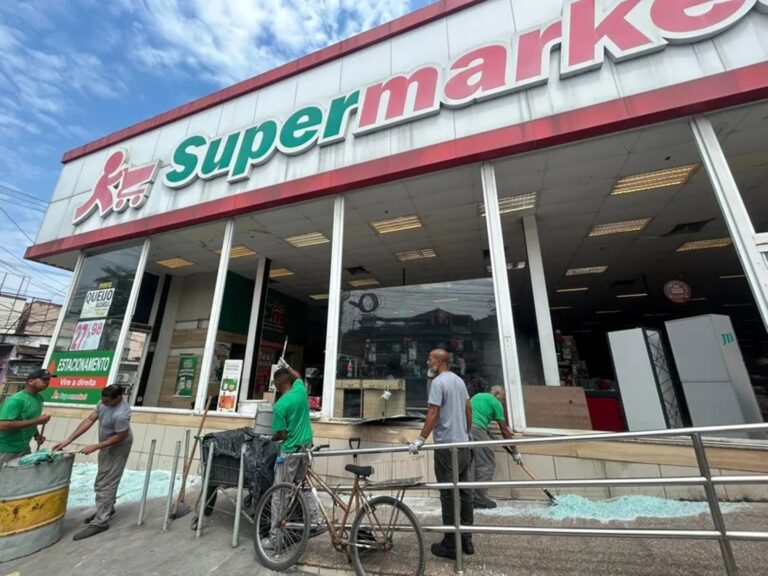
Albert Ramdin has been walking a fine line since he was elected secretary-general of the Organization of American States (OAS) for a five-year term in March.
On the one hand, he took a more cautious stance than his Uruguayan predecessor, Luis Almagro, but his anti-Chavista stance polarized opinion in the government, winning him admiration from the right and alienating him from the left.
Meanwhile, the continent’s highly polarized environment and Donald Trump’s aggressive policies toward the Americas, particularly the ship bombings off the coast of Venezuela, have made it increasingly difficult to manage tensions within multilateral organizations. It is no coincidence that the Summit of the Americas, scheduled to be held in the Dominican Republic in December, has been postponed.
In the interview, which took place days before an official visit to Brasilia, Ramdin avoided a direct confrontation with President Trump’s United States over its military mobilization against President Nicolas Maduro’s government, but said expulsion policies that do not take into account the causes of forced migration on the continent will not solve the problem.
“We all need to think about the future of the Americas. That future could be very positive. Or, if we go down a different path, it could be very negative and destructive,” the Secretary-General says.
Boyfriend first arrived at OAS in 1997, representing Suriname. What has changed in the continent’s organization and challenges from then to today? The founding objectives of the OAS remain unchanged: democracy, peace, security, development and human rights. They remain as important as they were in 1948 (when the organization was founded).
What has changed is the state of our hemisphere, determined by the political climate, leadership, economics, and technological influences.
What has evolved over time is an increased need to collaborate with each other. Most of the issues we deal with in the Americas today, such as immigration, organized crime, social cohesion, and poverty, are transnational in nature.
We need to create an agenda that addresses these issues. It is a state’s right under domestic law to simply deport people and remove illegal immigrants. But this doesn’t solve the problem, as the problem is a security and development issue.
See what’s happening in Haiti. People leave their countries because their lives are threatened.
The United States is carrying out a large-scale military mobilization near Venezuela, reportedly blowing up ships transporting drugs. Do these actions violate international law? Transnational organized crime and illegal drug trafficking pose major challenges to all countries in the hemisphere. You cannot continue. You won’t hear a voice in the Americas opposing the fight against transnational organized crime. Therefore, US intentions to combat transnational organized crime are not up for debate.
The question is whether this treatment is in accordance with international law. I won’t say anything more. This is because I would like to hear the opinions of the member countries (of the OAS) who are likely to raise this issue at the (OAS) Permanent Council meeting. Indeed, some believe that international law is not being followed.
He referred to Colombia’s request for the OAS Permanent Council to discuss “combating transnational organized crime and respecting human rights.” But U.S. military action has continued for months. Are regional countries avoiding addressing this issue out of fear of President Trump? I do not intend to speculate as to why Member States did not submit this to the Permanent Council. I believe there was an informal discussion.
Will there be a new U.S. Monroe Doctrine for the Americas? The Americas in the 19th century were different than they are today. At that time, many countries were still under colonial rule. The level of development of many countries was not at the level it is today. The same thinking cannot be applied.
There are 35 independent countries in the Americas today. We have made great progress in terms of democratization. Although it may not be as strong as we would like, progress towards stronger democracies is an accepted concept in the Americas.
There are five G20 members in the Americas. We have the United States, which certainly plays an important role as one of the wealthiest countries on earth. However, in terms of its relations with G20 member countries such as Brazil, Mexico, Canada, and Argentina, it is already building a world different from the past.
The US has cut funding for OAS projects. Did President Trump threaten to suffocate organizations that advance his political agenda? There was a moment a few months ago when I felt this kind of pressure about the possibility that the United States would not contribute as much as it should to the OAS. We did a lot of work behind the scenes as well as constructive conversations at the State Department, the White House, and Congress. There is clearly a change regarding OAS. They have not yet paid the full amount (from the regular budget), but there is a promise to pay by the end of the year.
I understand that next year’s budget will be similar to this year’s budget. This means OAS is not affected.
I have to say that OAS needs to think about how it funds this institution in the future. It is not a good situation to rely on one country for almost half of the budget.
Should countries like Brazil and Mexico pay more? I don’t want to pre-empt the discussion on quotas. Quotas are a tool negotiated between member states. However, I believe that if we all share the recognition that the OAS should be a platform for multilateral dialogue, we should be open to discussing how to contribute to the OAS.
He said in a recent interview that the continent is experiencing one of the greatest moments of political polarization in its history. How does this affect OAS? This is truly one of the most polarizing situations. I believe that we have responsible political leaders in the Americas, but it is important that they understand the benefits of working together.
What we need to do is develop a new hemisphere-unifying plan for the Americas. We have focused on divisive issues.
I focus on peace and prosperity. I have a positive outlook for the hemisphere. It’s not easy, I’m realistic. We need everyone to think about the future of the Americas, a future that could be very positive. Or if you go in another direction, it can be very negative and destructive.
Nicaragua has withdrawn from the OAS and Venezuela is in undefined status. Mr. Do you support re-incorporation of these countries? Ideally, the OAS should include 35 countries. We regret that one country, Nicaragua, has decided to withdraw from this organization. It remains to be seen whether Venezuela will continue like this. It’s a legal issue, but politically speaking, they don’t feel like they’re members. Cuba is also a member, but is not active.
We need to create a situation where all countries, whether we agree with them or not, feel comfortable sitting at the OAS table, feel respected, and feel their voices are heard.
Mr. Do you think there are conditions for a return to Venezuela under the Maduro regime? Withdrawal is a sovereign decision of member states. Re-entry is also a sovereign decision. It is not the responsibility of the Secretary-General to decide this.
What do you think of Brazil’s role in the OAS today? Brazil plays an important role in the Americas. This is not only because it is a large country and a large economic power, but also because of its perspective on inter-Americanism and its historical role in this regard. Brazil already had one of the most able general secretaries in the history of the OAS, João Baena Soares.
Brazil’s foreign policy is known for being very proactive, yet considered and balanced. Therefore, I believe that the role that Brazil can play in the hemisphere, including leadership, is important.
X-ray | Albert Ramdin, 67 years old
Born in Suriname in 1958. He studied in Paramaribo and Amsterdam, where he specialized in economic and social issues in the Caribbean and Latin America. He returned to Suriname in 1993 and spent the next few years advising various ministries. In 1997, he was appointed OAS Representative for Suriname, where he also served as Deputy Executive Director (2005-2015). In 2020, he was appointed as the country’s Minister of Foreign Affairs, a position he held until his election as Director-General of the OAS.



